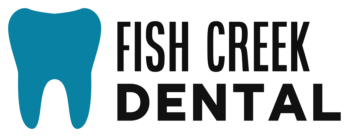Choosing a private dentist is an important decision that can impact your oral health and overall well-being. Whether you’re looking for routine dental care or specialized treatments, finding the right professional can make all the difference. With so many options available, it can be overwhelming to know where to begin. Here’s a guide to help you navigate the process of selecting a private dentist.
1. Consider Your Needs
Start by thinking about what type of dental care you need. Are you looking for general dental services such as cleanings, fillings, and check-ups, or do you need a specialist for cosmetic procedures, orthodontics, or implants? Understanding your specific needs will help you narrow down your options and find a dentist who can provide the right services.
2. Check Qualifications and Experience
A dentist’s qualifications are crucial when making your choice. Make sure the dentist is registered with the General Dental Council (GDC) in the UK or an equivalent regulatory body in your country. You can usually verify this on the dentist’s website or by calling the clinic directly.
Experience is also important, especially if you need specialized treatment. Look for a dentist who has a strong track record in the specific procedure or service you’re interested in. Reading reviews or asking the dentist about their experience can give you peace of mind.
3. Location and Accessibility
Location matters, especially if you have a busy schedule. You’ll want a dentist whose practice is conveniently located near your home, work, or school. This will make it easier to fit appointments into your day without too much disruption. Additionally, check the clinic’s hours of operation to ensure they align with your availability. Some private dentists offer evening or weekend appointments for added convenience.
4. Consider Costs and Insurance Options
Private dental care can vary widely in price, depending on the services you need. It’s important to ask for an estimate of treatment costs upfront. Many dental practices provide this information during an initial consultation.
If you have dental insurance, check whether the clinic accepts your policy. For those without insurance, inquire about payment plans or financing options. Some private dentists offer flexible payment schemes, making treatments more accessible.
5. Personal Comfort and Trust
A dentist-patient relationship should be built on trust and comfort. Your dentist should make you feel at ease, especially if you’re nervous about dental treatments. Pay attention to how the dentist and their staff communicate with you. Are they patient, understanding, and willing to answer your questions? A welcoming environment can greatly enhance your overall experience.
6. Hygiene and Technology
When visiting the dental clinic for a consultation, take note of the cleanliness and hygiene standards. A well-maintained, sterile environment is essential for any healthcare setting. Additionally, modern equipment and up-to-date technology can improve the quality of care and ensure that you receive the best possible treatment.
7. Emergency Care
Dental emergencies can happen at any time. Ask the dentist if they offer emergency services or out-of-hours care. Some private dental practices provide emergency appointments, which can be a significant advantage if you experience sudden pain or trauma.
8. Get Recommendations
Sometimes, the best way to find a reliable private dentist is through word of mouth. Ask friends, family, or colleagues for recommendations. Personal experiences can provide valuable insights that online reviews may not offer. You can also read patient testimonials on the clinic’s website or review sites to get a sense of the dentist’s reputation.
Conclusion
Choosing a private dentist is a personal decision that should be made carefully. By considering your dental needs, evaluating qualifications, and assessing comfort levels, you can find a dentist who not only meets your requirements but also provides a positive and professional experience. With the right dentist, you’ll be well on your way to maintaining good oral health for years to come.
